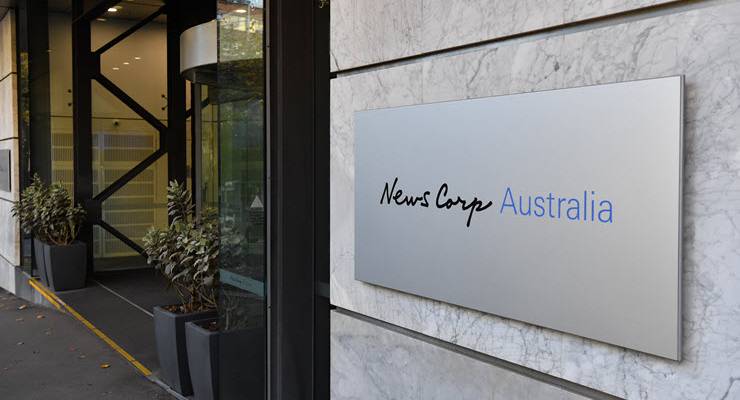
News Corp is awash with cash and capital — and the buzzword around the company is “optionality”. Global CEO and key Murdoch courtier Robert Thomson used the word several times in the analysts’ briefing for the company’s June quarter and financial year results released this morning.
The company’s COVID rebound has seen a surge in ad revenues — digital, that is — in the fourth quarter. With the finances fixed up, plenty of borrowed capital and tens of millions of dollars a week sloshing through its bank accounts, News Corp has financed US$1.7 billion (A$2.4 billion) in acquisitions so far this year.
Against this backdrop, Foxtel’s future ownership has become an “option” while a buyback of shares has suddenly emerged an issue to be weighed up and decided on in the next few months.
Are the two linked? News has to get agreement from Telstra to sell all or part of Foxtel, but Telstra would be out the door faster than Rupert Murdoch could change his mind. The telco is in sales mode, as the partial sale of its transmission towers earlier this year shows.
A Foxtel trade sale would be tough. Kerry Stokes, more a bricks-and-cement man these days, has just bought Boral. Other media moguls are very much reduced. Selling to another foreign owner would be smart (remember that News is a US company), and the rapidly growing streaming businesses Kayo (sport) and Binge (entertainment) make Foxtel the number-three streamer in this country behind Netflix and Nine Entertainment’s Stan.
Nine could buy it, but that would have News take a big and probably controlling stake in Nine, which would not pass the ACCC. There are options, but not all options are equal.
News Corp is now a digital real-estate operator with a rapidly growing media business built around The Wall Street Journal in the Dow Jones Co, an expanding book operation in Harper Collins, and Foxtel. The Australian and UK newspaper, radio and pay TV news businesses appear to be an afterthought, kept more for the revenues they bring in (about US$2 billion a year) and the political influence in Australia and the UK than for earnings and growth prospects.
As Crikey reported earlier this week, with the proposed purchase of US$1.15 billion of energy reporting group OPIS (which will be slotted into the Dow Jones Co), News isn’t interested in more expansion in its original product of news and information, particularly newspapers. It is cutting costs there (and growing elsewhere) and has rightsized the UK and Australian papers and other media businesses so that they do not chew up too much capital and will continue to fade.
In the post-results briefing, Thomson devoted more time to the looming profit at the New York Post than to the performance of News Corp Australia. The turnaround at Foxtel also received more time in Thomson’s comments — and in the financial detailing of the pay TV business from chief financial officer Susan Panuccio (an old News Corp Australia CFO) — than News Corp Australia.
News Corp Australia CEO Michael Miller was singled out in the brief commentary, but the performance at Foxtel of Patrick Delaney (CEO) and Siobhan McKenna (Foxtel chair and News Corp’s group director of broadcast) was mentioned with enthusiasm at least twice by Thomson.
He noted “record subscriber growth at Foxtel where, at the end of June, our paid streaming subscribers reached over 2 million, an increase year-on-year of 155%. That sterling performance has clearly given us much optionality as we consider Foxtel’s future, which is certainly bright, given that revenues rose 33% in the fourth quarter. “
Thomson failed to mention Sky News and its one-week ban by YouTube — and not one analyst questioned that or raised the subject.








Perhaps News Corp could sell off Sky News to the IPA and the Liberal Party funding structures…
If you look at News Corp in the UK, they are pouring money into The Times, launching a 24/7 radio station mid-2020 (mainly talk, and with top-level guests, witty, well-informed presenters, highly professional production standards) and expanding The Times’ website to include a massive section on the environment (https://www.thetimes.co.uk/environment).
Perhaps they are showing just how public-spirited they can be when the time comes to consider selling off parts of the BBC and the ABC. Or monopolising sports/gambling coverage?
Thanks for listing the various Newscorpse properties. I’ll be boycotting them.